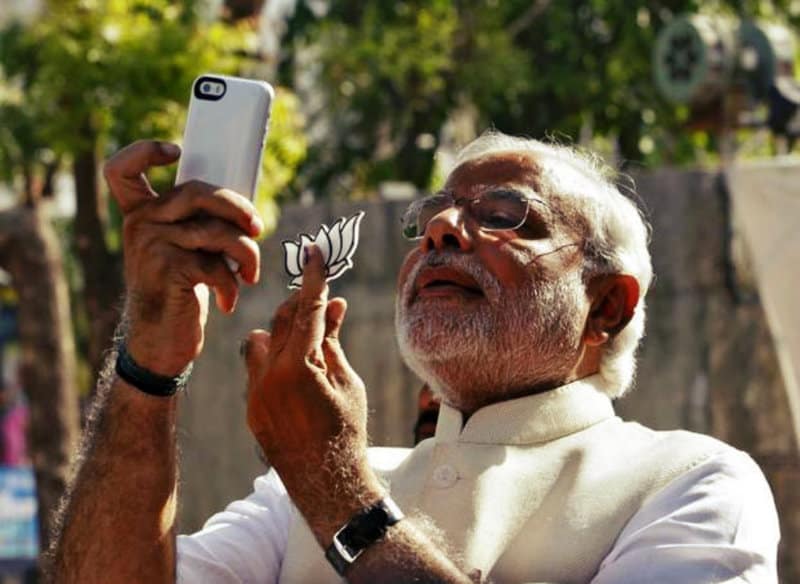From passport services to income tax, from railway ticket bookings to land records, the Narendra Modi government is working on a mobile application project that’ll eventually bring some 200 central, state and local government services onto a single platform.
In the pipeline for over eight months, the Unified Mobile Application for New-age Governance (UMANG) project was conceptualized to tap into India’s smartphone boom.
The project is being developed by the union ministry of communications and information technology’s national e-governance division (NeGD), which is currently looking for a partner agency to develop and roll out the platform.
“Everyone is carrying a smartphone and using the internet on mobile,” an NeGD official told Quartz. “So we want to provide services wherever the citizens are.”
Instead of endless waiting at government offices, users will be able to access these multiple services in 13 languages through a centralised mobile app. For users without smartphones, these services will also be available through SMS and a single toll-free number.
Most services on the platform will be those offered by the central, state or local government. But some private sector applications too will be considered, according to a request for proposal (pdf) floated by the NeGD.
| An indicative list of services on UMANG* |
|---|
| 1. National scholarship |
| 2. Women’s safety (Nirbhaya) |
| 3. Healthcare applications |
| 4. Crime and criminal tracking network and systems |
| 5. Passport seva |
| 6. Income tax |
| 7. CBSE/State education boards |
| 8. E-Municipality |
| 9. IRCTC |
| 10. Utility bills |
| 11. Commercial tax/GST |
| 12. Public distribution system |
| 13. e-Court |
| 14. Land records |
| 15. PF/NPS |
(*The full list is available in the request for proposal document.)
Within the first year of deployment, the UMANG platform is targeting about 50 services, which will eventually grow to 200 by the third year. Some of these will come from state and local governments, but the platform itself will be developed and deployed by the central government. State governments, however, will be able to distinctly brand their own services within the app.
Overall, it’s an ambitious list, especially given the disparate state of government services at different levels, but the NeGD is pushing to build an open-source platform that will allow for easy on-boarding of new services. “UMANG platform and mobile app, in addition to the services on-boarded through the platform, shall have functionalities to integrate with mobile applications developed by various government departments separately,” the request for proposal added.
Even then, convincing government departments to join the platform won’t be easy. “This is one of the big challenges,” the NeGD official admitted. But once the platform is functional, the NeGD hopes a strong user base and the functionality of UMANG will compel more departments to come onboard. The NeGD will also create a financial incentive for its partner agency to bring more government departments within the UMANG ecosystem.
UMANG will be designed to also integrate with existing services like Aadhaar for authentication, the online payments platform PayGov, and Digilocker, the government’s cloud-based document management system. Potentially, this means the platform could allow users to request for a government service, verify their identity, provide the required documents and pay for the entire process through a single app on their smartphone.
There are, of course, concerns over security and privacy considering the amount of information that UMANG will be sitting on. The NeGD’s guidelines are clear in that it will restrict the visibility of each department or ministry to only its own data. “It (UMANG) is not storing the data. It is only aggregating. It’ll connect to the backend database of each department,” the NeGD official explained. But the fine-print will nonetheless be crucial.
If the UMANG project does deliver, it’ll not only dramatically change how—quickly and efficiently—Indians interact with government, but could also allow central, state and local administrations to better understand their own performance.
“The UMANG platform should look at the usage at an aggregate as well as at an individual level,” the request for proposal said. “Relevant dashboards should be available for decision makers about the platform’s performance and usage and insights on user information (demographic, location, behavioural aspects etc.).”
This isn’t the first time that the Modi government has tried to build a mobile app to streamline bureaucratic processes. The entrepreneur-focused “Start up India, Stand Up India” plan, for example, also features an app that will allow startups to register in a single day and acts as a single point of contact for other approvals and clearances. In comparison, UMANG seems significantly more complex and a much bigger challenge.
But for now, the Modi government is still looking to find someone willing—and able—to build this Lord of the Apps.

